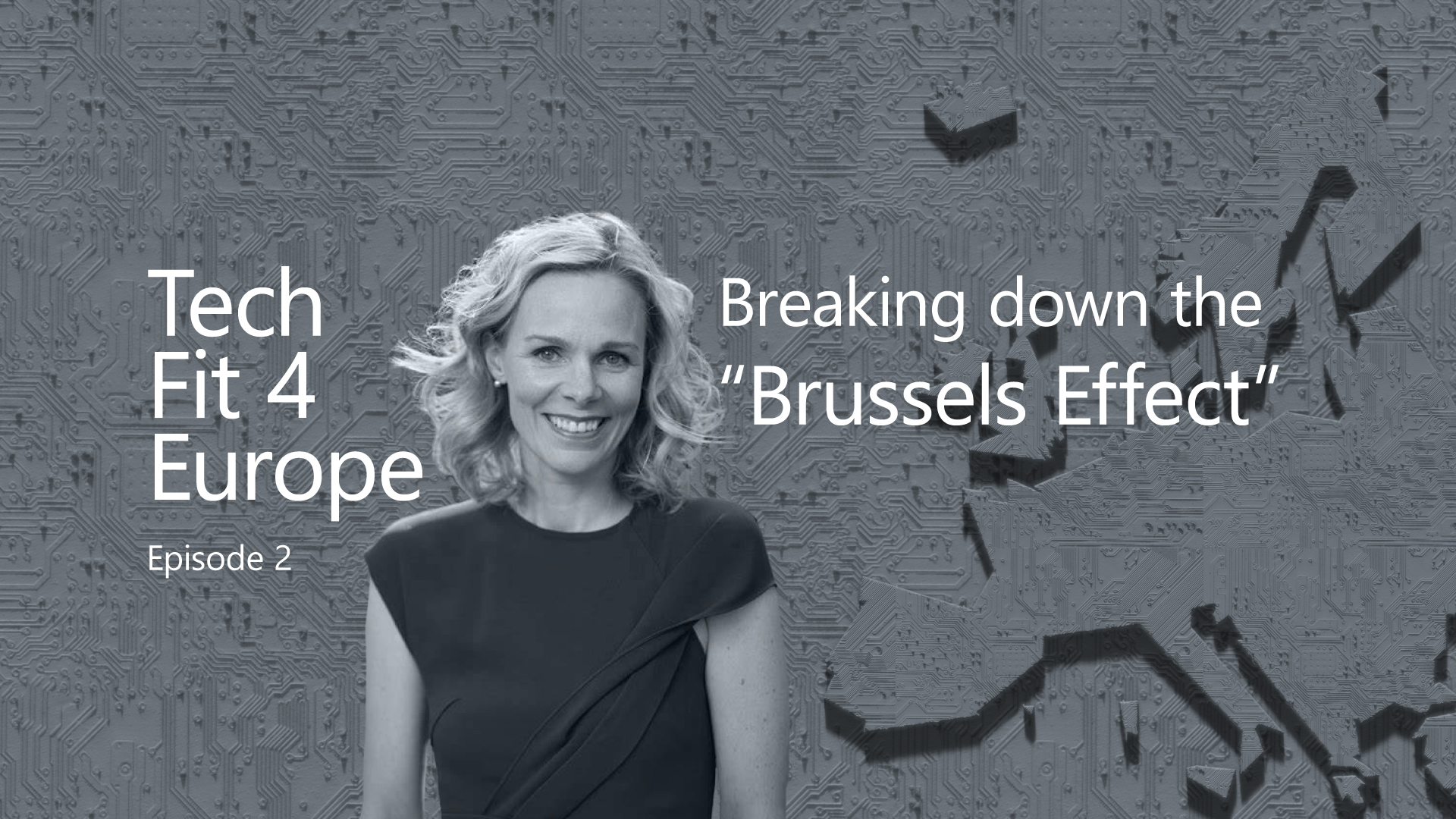The European Union is a truly global regulatory power.
That’s according to “The Brussels Effect: How the European Union Rules the World,” written by the Finnish-American author, law professor, and expert in international trade law, Anu Bradford, who joined Casper Klynge on our latest #TechFit4Europe podcast.
Here are five takeaways from the conversation:
1. The Brussels Effect guides the way the world does business
The EU – being one of the largest and wealthiest consumer markets in the world – has an ability to globalize the rules for the Single Market.
Many international companies want to do business with the EU and its member states. That means they end up adopting EU rules and regulations.
Bradford calls this the Brussels Effect, saying that it affects all kinds of regulations, from the privacy policies of big tech companies to what kind of pesticides cocoa farmers in Cameroon can use.
2. The EU is the middle ground of tech regulation
Bradford also sees EU rules as the gold standard because European values have a broad appeal, and when it comes to ideas around mitigating climate change or the regulation of technology, other countries follow.
“That’s why we see over 100 countries today with data privacy rules modeled on the GDPR, the General Data Protection Regulation,” she says.
For her, the “EU’s digital paternalism” offers a balanced, third way to tech regulation between the “American techno-libertarianism” and “the digital authoritarianism of China.”
3. Europe still needs the rest of the world
When it comes to its position on the global stage, “there is nothing to suggest the EU would want to go alone,” Bradford says. Its DNA is definitely multilateralist.
According to Bradford, the EU “wants to work together with other partners.” But Brussels is not afraid of acting unilaterally if it needs to, she adds.
In her opinion, the U.S. shares many of the same principles as the EU, and there is tremendous scope for transatlantic cooperation.
4. The Brussels Effect will affect Brexit
In her book, Bradford argues that Brexit does not undermine the Brussels Effect. It is the Brussels Effect, she says, that will undermine Brexit, and the UK’s regulatory sovereignty was always going to be difficult to achieve.
“The UK government cannot deliver on that promise, because the UK cannot unleash itself from the EU’s regulatory regime,” she says.
By losing one of the EU players that was more cautious towards regulation, the remaining member states may impose more stringent rules, says Bradford, because there is no longer the staunchly “pro-market approach advocated by the UK.”
5. The relationship between regulation and innovation is nuanced
Looking at the difference between the regulatory philosophies of the U.S. and Europe, Bradford concedes that the EU has not always got the balance right with regulation. But at the same time, she is not willing to say more regulation always leads to less innovation. “I think the relationship between regulation and innovation can cut both ways and is a little bit more nuanced.”
As an example, Bradford describes how cell phone plans are cheaper in the EU than in the U.S. because there is more regulation, resulting in more competition.
When it comes to AI regulation, she says: “It is not enough that the EU wants to be the referee. It also needs to get on the field, it needs to learn to play both offense and defense and be a player.”
She also defines the EU’s goal as “influencing the regulatory framework to create the kind of environment within which innovations can take place.”
Available on Spotify | Apple Podcasts | Google Podcasts| Stitcher | RadioPublic | Deezer | Libsyn | RSS
A transcript of this episode can be found here.
Listen to more episodes of the Tech Fit 4 Europe podcast here.

